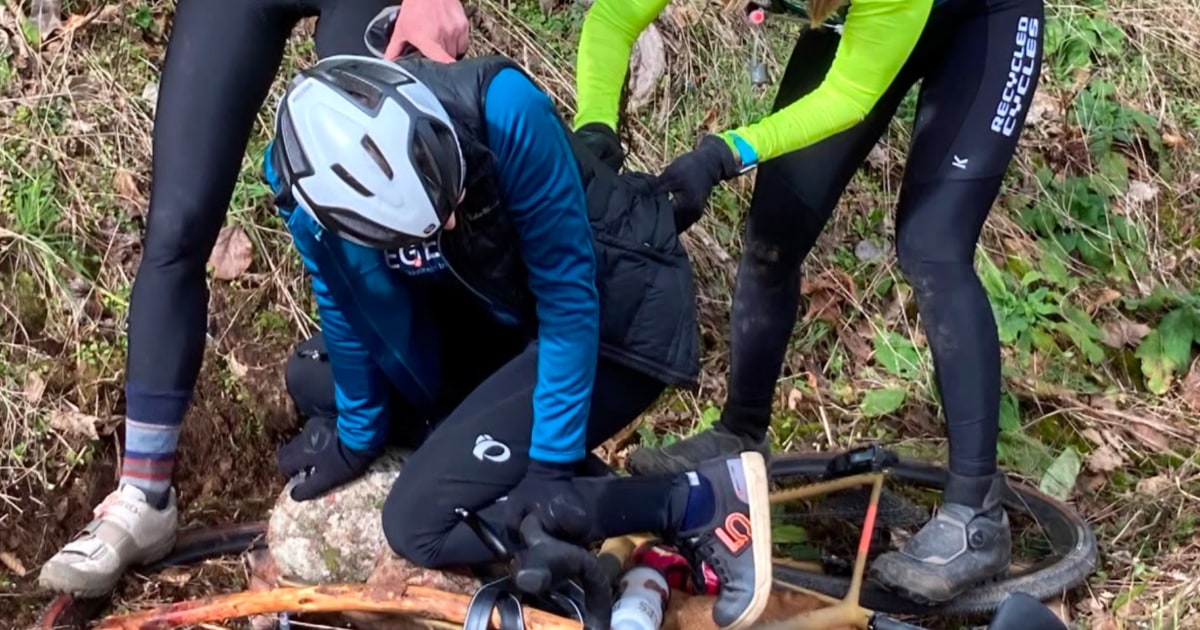The cat dialed back pressure through its crushing jaws, and the friend was able to pull away, fellow cyclists said in an interview one month after the incident east of Seattle.
A group of Seattle-area cyclists who helped one of their own escape the jaws of a cougar recounted their story this weekend, saying they fought the cat and pinned it down.
The woman who was attacked, Keri Bergere, sustained neck and face injuries and was treated at a hospital and released following the Feb. 17 incident on a trail northeast of Fall City, the Washington Department of Fish and Wildlife said in a statement.
Bergere said she spent five days at an area hospital and was still recovering.
Fish and Wildlife Lt. Erik Olson called the actions of her fellow cyclists “heroic” in the statement. But the extent of the cyclists’ battle with the 75-pound cat wasn’t immediately clear then.



Wolves almost never see adult humans as prey. Since 1761, only 77 non-fatal attacks and 40 fatal attacks from wolves. However, of those 40, only 9 occurred in the last 100 years and 2 of them were death from rabies. Many of the non-fatal attacks and a few of the fatal attacks were from captive wolves. Most of the attacks involved children and/or pets.
Wolves have been practically extinct in the US for many decades. That’s a major reason why there are so few incidents. However, I agree that viewing adult humans as prey isn’t “typical” wolf behavior.
Would a healthy wolf prefer to hunt a human over other prey? No. But we’re talking about wild animals. If you encounter a wolf in the wild you don’t know if it’s hungry or sick, and the animal may absolutely treat you as prey.
40 since 1791